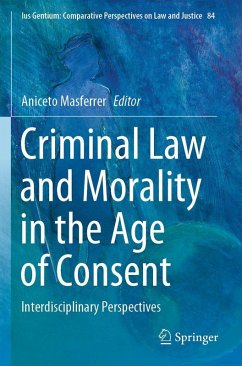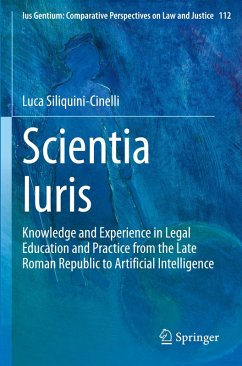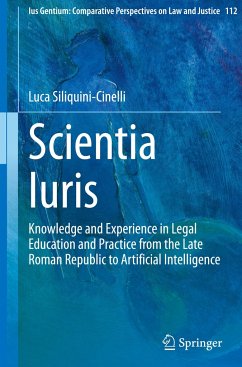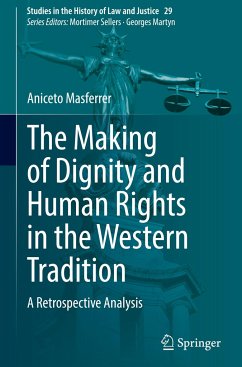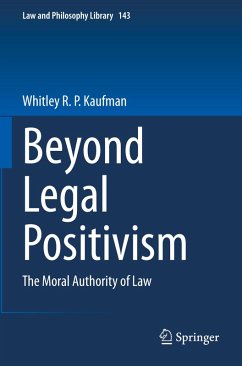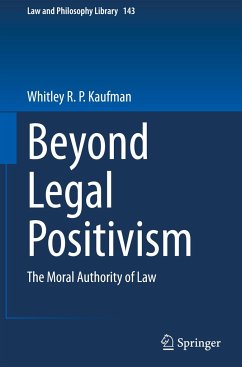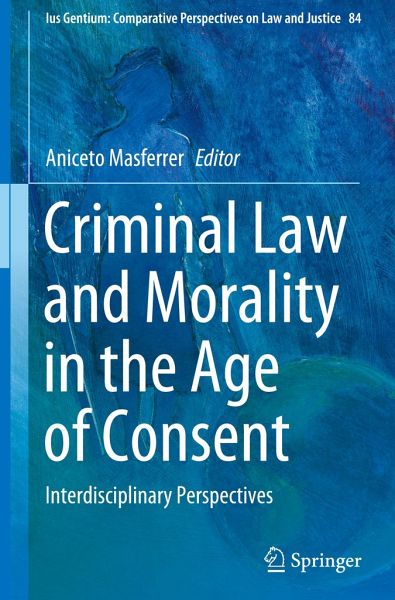
Criminal Law and Morality in the Age of Consent
Interdisciplinary Perspectives
Herausgegeben: Masferrer, Aniceto

PAYBACK Punkte
65 °P sammeln!
This book discusses the relation between morality and politics, and morality and law, a field that has been studied for more than two thousand years The law is a part of human culture, and this touches upon a dynamic reality that is connected to the relation between nature and freedom, nature and culture. If such relations are not clearly understood, as is the case today, the relation between morality and law cannot be properly comprehended either.The relationship between morality and criminal law must constantly evolve to meet the needs of changing times and circumstances. Social changes and ...
This book discusses the relation between morality and politics, and morality and law, a field that has been studied for more than two thousand years The law is a part of human culture, and this touches upon a dynamic reality that is connected to the relation between nature and freedom, nature and culture. If such relations are not clearly understood, as is the case today, the relation between morality and law cannot be properly comprehended either.
The relationship between morality and criminal law must constantly evolve to meet the needs of changing times and circumstances. Social changes and new situations require new answers. And since the relationship involves criminal law, legal philosophy and legal history, interdisciplinary approaches are always needed. Featuring fifteen original contributions by legal scholars from various European and American universities, the book does not pretend to solve the complexity of the relation between morality and criminallaw, but instead expresses criticism, offers some proposals and stimulates further thought.
The book tackles the topic from an interdisciplinary perspective (criminal law, constitutional law, legal philosophy and legal history, among others). As such, it appeals not only to scholars and students, but also to lawyers, policymakers, historians, theologians, philosophers and general readers who are interested in the legal, social, political and philosophical issues of our time.
The relationship between morality and criminal law must constantly evolve to meet the needs of changing times and circumstances. Social changes and new situations require new answers. And since the relationship involves criminal law, legal philosophy and legal history, interdisciplinary approaches are always needed. Featuring fifteen original contributions by legal scholars from various European and American universities, the book does not pretend to solve the complexity of the relation between morality and criminallaw, but instead expresses criticism, offers some proposals and stimulates further thought.
The book tackles the topic from an interdisciplinary perspective (criminal law, constitutional law, legal philosophy and legal history, among others). As such, it appeals not only to scholars and students, but also to lawyers, policymakers, historians, theologians, philosophers and general readers who are interested in the legal, social, political and philosophical issues of our time.





